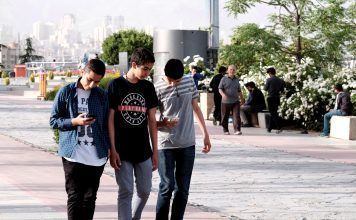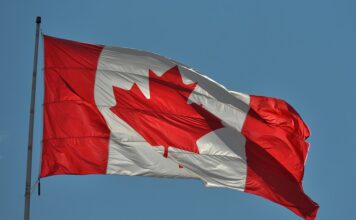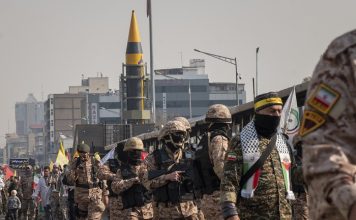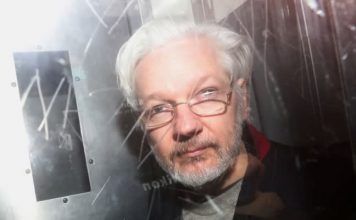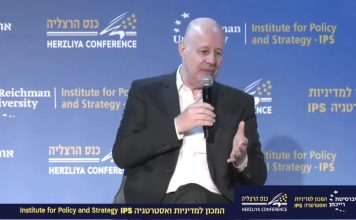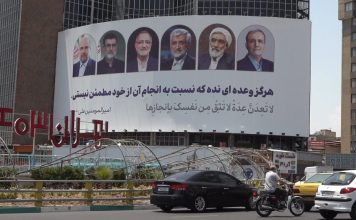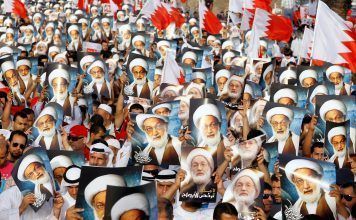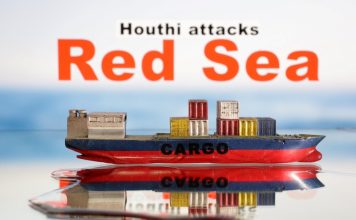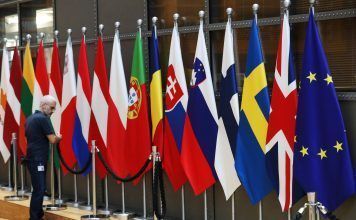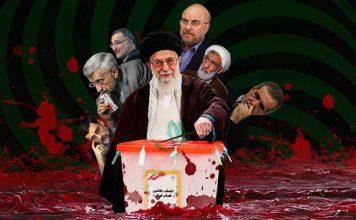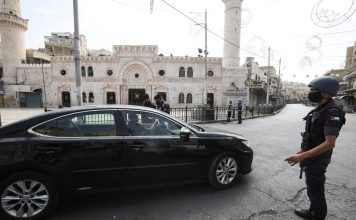By Kayhan Life Staff
Mahmoud Abbas, the President of the Palestinian Authority, publicly criticized Iran’s Supreme Leader, Ayatollah Ali Khamenei, for his support of Hamas’ terrorist attack on Israel, codenamed “Operation Al-Aqsa Deluge,” on Oct. 7.
“The Palestinian people are not interested in wars that do not aim to secure their freedom and independence,” Mr. Abbas said.
Abbas’s remarks were a response to Mr. Khamenei’s speech on the anniversary of the death of Ayatollah Ruhollah Khomeini, the founder of the Islamic Republic, on June 3, in which he said: “The remarkable Operation Al-Aqsa Deluge has set the Zionist regime on a path to destruction by thwarting the enemies’ extensive plan to dominate the region and the Islamic world. Given the faith and steadfastness of the people of Gaza, the occupying regime is crumbling before the eyes of the world.”
Abbas contended that remarks such as those made by Khamenei are deliberately designed to “portray the Palestinians as victims,” emphasizing that “such declarations do not contribute to the progress of establishing an autonomous Palestinian state.”
Some analysts suggest that Khamenei’s backing of Hamas’ terrorist activities is a strategic move aimed at sending a message to Israel and the West. Tehran believes that the increased international pressure on Iran to halt its nuclear programs stems from “fabricated” Israeli reports and documents.
Banning UK Arms Exports to Israel Would Strengthen Iran Regime-Backed Hamas, UK’s Cameron Says
The Islamic Republic’s senior military and intelligence officials argue that Operation Al-Aqsa Deluge was strategically planned to alter the dynamics within the region. They highlight the impacts of Hamas’ action on disrupting peace talks and the normalization of relations between Saudi Arabia and Israel. Khamenei has also echoed similar sentiments on this matter.
Mahmoud Al-Habash, an advisor to President Abbas on religious and Islamic affairs, accused Iran of using the Palestinian cause for its interests and sacrificing the lives of Palestinians in doing so.
“The Iranian regime uses the Palestinian cause for its interests and plans. Sacrificing the Palestinian people and shedding their blood is in the interest of the Islamic Republic. It is in the interest of those who want to trade with the blood of the Palestinian people, and I say that there are no fond words after the comments by Valiye Faghih [Khamenei] of the Iranian regime,” Mr. Al-Habash said in an interview with Saudi-owned Al-Arabiya TV on June 3.
“Iranian regime dictates its demands to Hamas,” he added.
In an interview with the Saudi-based Al-Hadath TV on June 4, Jamal Nazzal, the spokesperson for Fatah, said: “Hamas serves as a continuation of the Iranian regime’s influence in Palestine. The Iranian government has strategically aligned itself with Hamas to advance its interests in the region.”
While the Palestinian Authority is urging Iran to stop interfering in Palestinian affairs, Ali Bagheri Kani, who became the acting foreign minister following the death of Hossein Amir-Abdollahian in a helicopter crash on May 19, held meetings with several Hamas leaders and Hassan Nasrallah, the Secretary General of Lebanese Hezbollah, in Damascus on June 4.
According to the Iranian state media, Mr. Kani’s meeting focused on “establishing a new security order in the region.”
During a press briefing on June 4, the U.S. State Department spokesperson Matthew Miller was asked: “The Iran supreme leader said in a speech yesterday that the Oct. 7 attack came at the right time and the action thwarted the grand plan of the Middle East region. Do you have any comments on that?”
“So, it goes to something you have heard this Secretary [of State Antony Blinken] say before: there are two paths for this region. One is a path to greater integration, greater peace, greater stability, greater commonality among the peoples of the region, and the other path is continued conflict and death and destruction and despair,” Mr. Miller said. “And we obviously support the first path, but it is also quite clear that the biggest opponents to further integration in the region, further peace in the region, stability are Iran, Hamas, Hezbollah, the other proxy groups that Iran funds.”
In his press briefing a day earlier, Miller said: “We agree with Israel that Hamas cannot run Gaza. We agree with Israel on Israel’s right and Israel’s obligation to pursue Hamas for the terrorist attacks of Oct. 7. However, an endless conflict without a political plan forward is just going to leave Israel bogged down in Gaza and is going to exacerbate the security challenges that they face in the north of Israel. It is going to exacerbate the security challenges they face in the West Bank. It is going to exacerbate the security challenges they face against Iran and the proxies that it funds because it makes it more difficult for Israel to work with its allies and its partners in the neighborhood.”
Although the administration of U.S. President Joe Biden has highlighted the importance of halting the conflict in Gaza, some critics argue that the government has not presented a viable solution to address the threats posed by Hamas and the support provided by the Islamic Republic to terrorist groups.
The government of Israel, the pro-democracy opposition inside Iran, and prominent figures from various opposition groups, including Prince Reza Pahlavi, have consistently stressed that “the path to peace between Israelis and Palestinians runs through Tehran,” arguing that there will not be peace in the region if the Islamic Republic remains in power.


